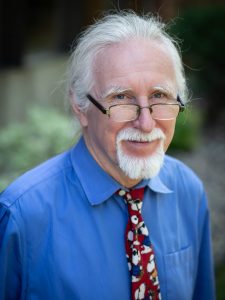 By Bob Hulteen
By Bob Hulteen
Whew. I just got news that the American Sign Language (ASL) interpretation of the resolutions under consideration at Synod Assembly this weekend will arrive in time (barely) to publish them on the website today. The posted two-minute video recordings of each current bishop nominee are already interpreted in ASL and Spanish for our congregations where those are the primary languages.
Unfortunately, we had trouble with our Spanish interpretation of the budget hearing last week. The interpreters weren’t able to use the Zoom interpretation link, allowing for simultaneous interpretation. Our technology failed us, limiting the participation a bit for everyone.
On Sunday, as I was putting away some of Holy Trinity’s worship materials, I had a chance to visit with Pastor Andrea Mwalilino. He was setting up for the worship of Minnesota Swahili Christian Congregation, another one of the parishes of our synod, and we had a short conversation about the anticipation leading up to Synod Assembly, and specifically the election of the next bishop.
“The Pentecost experience of Acts is a parallel story, a reminder of the post-flood Genesis reality.”
More and more, the Synod Assembly could be a time that prepares us for the celebration of Pentecost that comes in three weeks. Languages – the best-known theme in the first two chapters of Acts – are keys to accessibility in the U.S. right now, just as they were when Jesus’ disciples were discerning the way to be The Way.
BIBLICAL SCHOLAR Ched Myers, while known for his teaching on the Gospel of Mark and his book “Binding the Strong Man,” has done significant study of both Genesis and Acts. Not surprisingly, one of his key observations is about language and the nature of empire.
In Genesis 10:32 we read: “These are the clans of Noah’s sons, according to their lines of descent. … From these, the nations spread out over the earth after the flood.” And, immediately, in Genesis 11:1, “Now the whole world was one language and a common speech.” As Myers points out, “one language” becomes a means of centralization and consolidation of power and oppression. As poet and theologian Rose Marie Berger says it, “Monolingualism is one of the tools of oppression. The more coherent the society is, the easier it is to control.”
It is the Tower of Babel story that follows. The “one language” was a hallmark of the Babylonian centralization of power and control over peoples of the region, including the Hebrews. God frustrates that oppressive trajectory through the “confusion of languages.” Diversity becomes God’s “divine no” to oppression.
The Pentecost experience of Acts, Myers believes, is a parallel story, a reminder of the post-flood Genesis reality. These disciples were from a variety of countries, but were confronted by the domination of the Roman Empire and the lingua franca – the assumed dominant language – of Greek.
“God frustrates that oppressive trajectory through the “confusion of languages.’”
But, with a whirling wind, a rush pneuma, each disciple spoke in “other languages.” Power is immediately re-ordered to the value the gifts of local language over the centralized control of monolingualism..
The Holy Spirit is a great equalizer. In windy gusts she rushes over us, freeing us from the control of dominating forces. We are free to be a community – a diverse one.
As we come together as church in assembly this week, we witness to this community. With ASL interpreters standing beside the speakers and Spanish interpreters speaking through headphones, may we experience the power of liberation that the Holy Spirit offers. May we feel the sense of community released from barriers so that we can be the siblings we were created to be.
